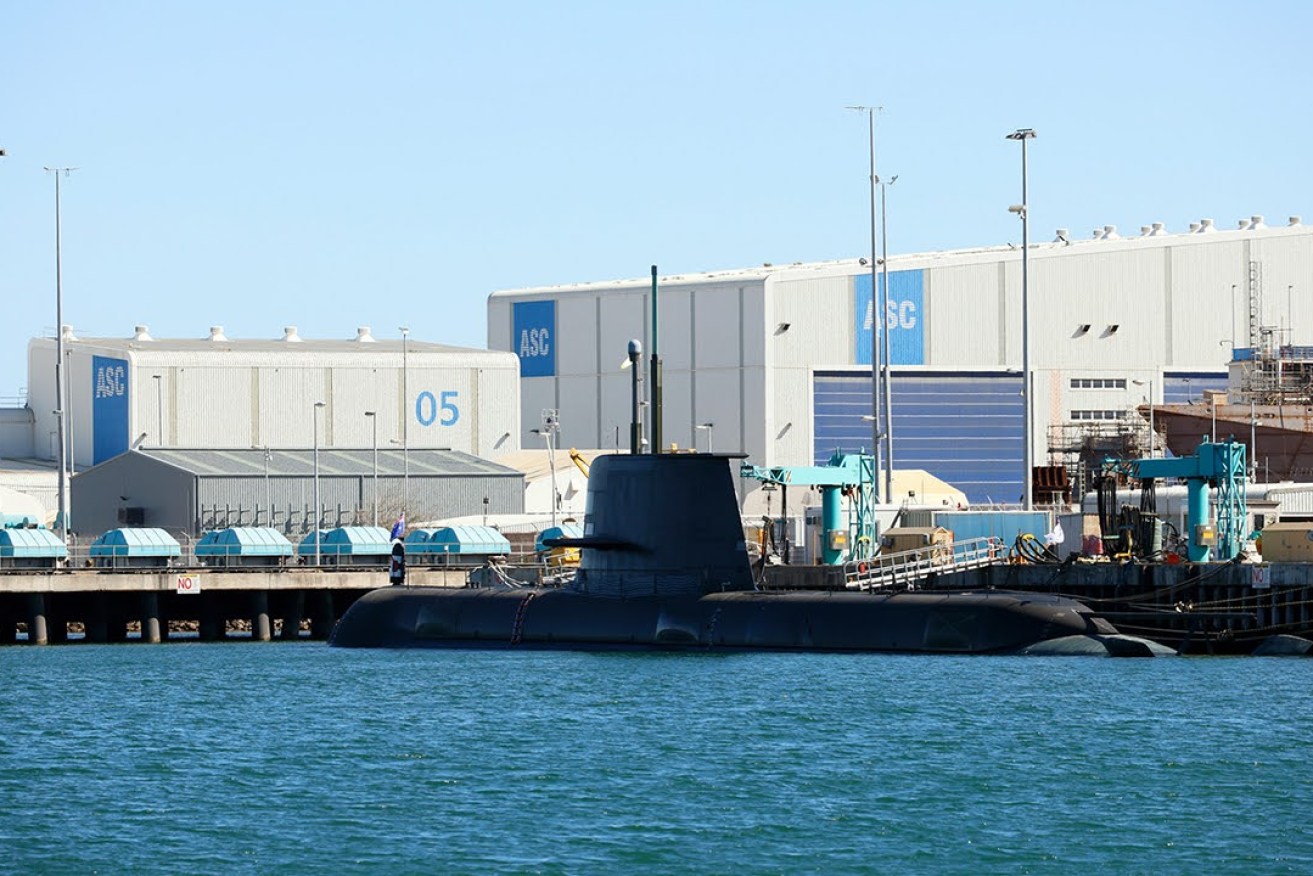SA defence companies likely to exit sector under new review
Defence companies – many already reeling after losing millions of dollars in the cancelled French submarine build project in this state – are likely to leave the sector as the federal government’s Defence Strategic Review creates new uncertainty, according to the state’s leading industry body.


Nuclear-powered submarines will be built at Osborne in SA, the site where Collins Class submarines are maintained. Photo: InDaily
Numerous businesses will lose out as the government’s direction changes again, Defence Teaming Centre (DTC) acting chief executive officer Tim Dore says, citing changes to the Land 400 vehicle contract and review of the nation’s fleet as areas of concern.
While the industry described the review as a “welcome relief” to learn which defence projects will continue, Dore wants the government to move faster in telling industry who the “winners and losers” will be in the surface ship review it has now announced.
South Australia is home to many leading defence companies but also numerous small to mid-sized supply chain businesses contributing to national projects that Dore said would need to make a decision about whether they can afford to stay in the industry.
“Some will take what’s available, there will be other companies that will work to keep alive by also moving into other industries like agriculture or mining, and there will be those that will exit the defence industry completely,” he said, adding many companies could lose “millions of dollars in lost investment” with the review cancelling and reducing projects.
The national Defence Strategic Review was released earlier this month, commissioned by the Albanese Government to assess whether Australia has the best defence capability in place to deal with changing global tensions.
Due to the significant changes in Australia’s strategic circumstances, Australian Defence Minister Richard Marles said the Federal Government agreed with the review’s finding that the Australian Defence Force needs to be better equipped to combat threats.
South Australia remains central to the government’s largest capability project to acquire nuclear-powered and conventionally armed submarines that will be built at Osborne under a $368 billion AUKUS agreement.
While the Federal Government has said first steel on the submarines will be cut in SA this decade, there is still uncertainty about when this ambitious plan will create economic benefit or jobs.
The review does recommend that substantial investment is needed to grow the necessary workforce at Osborne, “this is in addition to the infrastructure needed for any build component of a nuclear-powered submarine, which must be started immediately”.
In the meantime, the state will continue its work to maintain the Collins Class submarines at Osborne.
However, there is more uncertainty tied to the government’s decision to conduct a short independent review, reporting third quarter, of the Navy surface combatant fleet to ensure its size, structure and composition complement capabilities provided by the new nuclear submarines.
This could mean BAE Systems Australia’s work currently underway in the $44 billion project to build nine Hunter-class anti-submarine warfare frigates at Osborne’s purpose-built facility is reduced.
The government supported the strategic direction and key findings of the review to also change its response to other large defence capability contracts, the Army particularly losing out with the acquisition of 450 Infantry Fighting Vehicles under Land 400 Phase 3 now to be reduced to 129.
Hanwha Defense Australia and Rheinmetall Defence Australia already have submitted their final offerings for the Australian Army’s next Infantry Fighting Vehicle under the program that was previously worth $18-27 billion. The first tender was called in 2018, those bidding on the project whittled down to the two front runners in 2019.
The project to acquire additional self-propelled howitzers under Project Land 8116 Phase 2 will also be cancelled.
Dore said this could affect SA companies linked to the major projects through the supply chain, “all the primes in Australia are very, very proactive in trying to find local industry to support these bids”.
“We understand why the significant overhaul was needed. We are in a considerably different geopolitical environment than in 2020, and the DTC appreciates the Albanese government requesting the review early on in their tenure,” Dore said.
“However, there are numerous businesses who have lost out on work and who have lost hundreds of thousands of dollars in investments they had made to upskill their workforce and equipment based on defence’s previous requirements, only to see the government’s direction once again change. Neither the taxpayer nor the war fighter benefits from this indecision.”
The Defence Structure Review was commissioned by the new Labor government and conducted by former defence force chief Angus Houston and former Labor Defence Minister Stephen Smith.
Their suggestion to complete an inaugural National Defence Strategy in 2024, which will be updated biennially was agreed to by the Federal Government.
Dore said the DTC wants strong industry input, as this had the potential to help remove the “uneasiness” of working on defence projects that are reviewed “at sporadic intervals”.
“Changes and uncertainty affect industries’ confidence of investing in Australia’s sovereign capability,” he said.
“With the huge demand for skilled employees in all sectors, members are worried that it may be difficult for them to afford to keep Australian skilled staff when there are few manufacturing and testing opportunities on the near horizon for Australia’s defence industry.
“What the DTC would like to see is a bipartisan approach to how the Australian government wants to defend our shores. Australia’s defence industry has the speed, agility and capability required to deliver to defence; however, Australia’s defence industry is not being given the opportunity to begin building this important design expertise due to changing defence priorities.”




